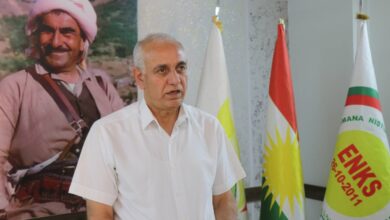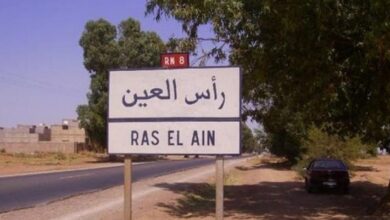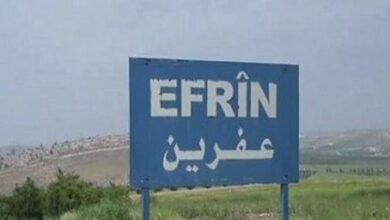
Syrian Kurds cut IS supply line near Iraq; fears for Christians mount
(Reuters) – Kurdish militia pressed an offensive against Islamic State in northeast Syria on Wednesday, cutting one of its supply lines from Iraq, as fears mounted for dozens of Christians abducted by the hardline group.
At least 90 Assyrian Christians were seized from villages in Hasaka province in a mass abduction coinciding with the offensive in the same region by Kurdish forces backed by U.S.-led air strikes, according to the Syrian Observatory for Human Rights, which tracks the conflict.
The Syriac National Council of Syria put the figure as high as 150. Hundreds more Christians have fled to the two main cities in Hasaka province, according to the Syriac council and the Observatory.
Islamic State has killed members of religious minorities and Sunni Muslims who do not swear allegiance to its self-declared “caliphate”. The group last week released a video showing its members beheading 21 Egyptian Coptic Christians in Libya.
The abductions in Syria follow advances by Kurdish forces against Islamic State in parts of the northeast near the Iraqi border, an area of vital importance to the group as one of the bridges between land it controls in Iraq and Syria.
“They want to show themselves strong, playing on the religion string, at a time when they are being hit hard,” said Rami Abdulrahman, who runs the British-based Observatory, speaking by telephone.
The Syrian Kurdish YPG militia, backed by U.S.-led air strikes, last month drove Islamic State from the Syrian town of Kobani, since when further signs of strain have been seen in the group’s ranks.
KURDS INFLICT NEW LOSSES ON ISLAMIC STATE
The Assyrian Christians were taken from villages near the town of Tel Tamr, some 20 km (12 miles) to the northwest of the city of Hasaka. There has been no word on their fate. There have been conflicting reports on where the Christians had been taken.
“These were peaceful villages that had nothing to do with the battles,” said Nasir Haj Mahmoud, a Kurdish official in the YPG militia in northeastern Syria, speaking by telephone from the city of Qamishli.
Some Christians are fighting under the umbrella of the YPG in Hasaka province, but not in that area, he added.
The new Kurdish offensive launched at the weekend was focused on dislodging Islamic State from areas some 100 km (60 miles) further to the east, including Tel Hamis, a town that is one of its strongholds.
The Observatory said at least 132 Islamic State fighters had been killed in the fighting since Feb. 21. It said an Australian man who had joined Kurdish YPG forces has been killed on Tuesday in an Islamic State assault.
Officials from the YPG refused to comment. A Kurdish source in northern Syria confirmed the report, asking not to be named.
Several foreigners, including Europeans and Americans, have joined the YPG in its fight against Islamic State. Their numbers are dwarfed by foreign jihadist recruits to the other side.
A second Kurdish official confirmed a foreigner had been “martyred” but declined to give further details.
In a telephone interview from the city of Qamishli, he said the YPG had cut a main road linking Tel Hamis with al-Houl, a town just a few miles (kilometers) from the Iraqi border.
“This is the main artery for Daesh,” he said, using an acronym for Islamic State. The Kurdish YPG militia had seized more than 100 villages from Islamic State in the area, he added.
“We believe we will finish the battle of Tel Hamis in this campaign,” he added.
Videos posted online by the YPG showed Kurdish fighters firing at Islamic State positions in Hasaka. Photos posted by activists showed displaced people who had fled the fighting for safer areas sitting in the backs of trucks.
OFFENSIVE WELL-ORGANIZED
The offensive underlines the emergence of the well-organized Syrian Kurdish militia as the main partner for the U.S.-led alliance against Islamic State in Syria.
Mainstream rebels fighting President Bashar al-Assad have mostly been eclipsed by jihadists, complicating a U.S. plan to train and equip Syrian opposition forces to fight Islamic State.
Washington has shunned the idea of partnering with the Damascus government, seeing Assad as part of the problem. Syrian government forces, waging a separate campaign against Islamic State, have made advances against the group in Hasaka in recent weeks.
The latest fighting in Hasaka is one piece of the Syrian war that is about to enter its fifth year and is being fought by an array of forces on multiple front lines.
Government forces and allied militia are waging their own campaign against Islamic State, while also battling other insurgents including mainstream rebels and the al Qaeda-linked Nusra Front in western areas that are mostly under state control.
A large offensive by government forces backed by the Lebanese group Hezbollah earlier this month made swift progress in the south before slowing, while an attempt to encircle rebel-held areas of the northern city of Aleppo last week was repulsed, according to the Observatory.
The U.S.-based Human Rights Watch accused the Syrian government on Tuesday of carrying out hundreds of indiscriminate aerial attacks in the past year, mostly with barrel bombs, in defiance of a United Nations Security Council demand to stop.




